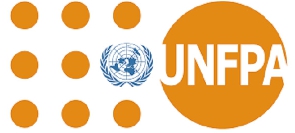The United Nations Population Fund (UNFPA), the United Nations’ sexual and reproductive health agency, will on July 11, 2023, commemorate the World Population Day with governments, civil society, non-governmental organisations (NGOs) and Youth groups to bring attention to pertinent issues faced by people in the world.
This year, the World Population Day will be used to highlight the need to advance gender equality to help realise the dreams of all the 8 billion people on our planet. This year, the United Nations system in Ghana, UNFPA Ghana Country Office, together with the National Population Council (NPC), the Regional Institute for Population Studies (RIPS), University of Ghana and the Planned Parenthood Association of Ghana (PPAG), will be commemorating the World Population Day under the theme: “Unleashing the power of gender equality to spur national development”.
Women and girls make up 49.7 percent of the global population. Yet their desires for their lives, families and careers are often ignored in discussions on demographics and their rights violated in population policies. The result is a world that excludes, marginalises and limits the potential of every other person on the planet – a problem that will prevent all of us, not just women and girls, from experiencing a more prosperous, peaceful and sustainable future.
On World Population Day 2023, we highlight the need to advance gender equality to help realise the dreams of all. This starts by listening to the voices of women, girls and other marginalised people and introducing laws and policies that enable them to exert their rights and make meaningful choices.
The growth of the global population has also been in sync with the increase in Ghana’s population growth from about 24 million people in 2010 to about 32 million people following the first digital population census by the Ghana Statistical Service which UNFPA supported in 2021.
Young people and adolescents account for more than 56% of Ghana’s population and the population of women and girls are far more than 50% of the total population. As a situation, it calls for the Government to invest in their health and education, while providing them opportunities for decent work so that they can contribute to economic growth and overall social development.
Regional News of Tuesday, 11 July 2023
Source: UNFPA Ghana

















